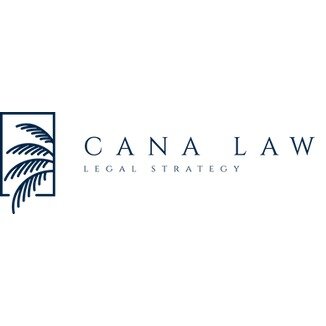Best Landlord & Tenant Lawyers in Punta Cana
Share your needs with us, get contacted by law firms.
Free. Takes 2 min.
Free Guide to Hiring a Real Estate Lawyer
List of the best lawyers in Punta Cana, Dominican Republic
About Landlord & Tenant Law in Punta Cana, Dominican Republic
Landlord and tenant law in Punta Cana is governed by the broader legal framework of the Dominican Republic, which aims to regulate the relationship between landlords and tenants to ensure fair and equitable treatment for both parties. Rental agreements, lease terms, and tenant rights are outlined in legal statutes. Whether renting residential or commercial property, understanding the local laws is crucial for maintaining a harmonious relationship between landlord and tenant.
Why You May Need a Lawyer
Legal assistance may be required in several situations, including:
- Drafting or reviewing rental contracts to ensure they adhere to Dominican law.
- Resolving disputes over rent payment, property damage, or lease violations.
- Guidance on eviction processes and tenant rights.
- Interpreting complex legal documents and local real estate laws.
- Representation in court or mediation settings if conflicts escalate.
Local Laws Overview
The key aspects of landlord and tenant law in Punta Cana include:
- Leases must be in writing to be legally enforceable and should outline the terms of the rental agreement clearly.
- Security deposits are common practice, and the law regulates both the amount and the conditions under which they are returned.
- Landlords are required to maintain the property in a habitable condition, ensuring basic amenities and structural integrity.
- Tenants have the right to privacy and peaceful enjoyment of the property without undue interference from the landlord.
- Eviction processes require legal notice and justification, typically through courts, to ensure tenant rights are not violated.
Frequently Asked Questions
What are my rights as a tenant in Punta Cana?
As a tenant, you have the right to a safe, habitable, and private living space. Your landlord must respect the terms of the lease agreement and follow proper procedures if they wish to alter or terminate the contract.
How can I legally end a lease agreement early?
To end a lease early, you typically must provide notice as specified in your lease agreement. It is advisable to review your lease and consult a lawyer to ensure compliance with contractual and legal obligations.
Can my landlord increase my rent before the lease term ends?
Rent increases are generally only permissible at the end of a lease term unless otherwise stated in the lease agreement. Check your contract for specific terms regarding rent adjustments.
What steps can I take if my landlord is not making necessary repairs?
First, notify your landlord of the needed repairs in writing. If they fail to act, legal avenues, including mediation and court intervention, could be pursued. Consulting with a lawyer will help determine the best course of action.
What should be included in a lease agreement?
A lease agreement should include rent amount, payment due dates, security deposit terms, maintenance responsibilities, duration of the lease, and clauses regarding renewal and termination.
Is a verbal rental agreement valid?
While verbal agreements can be valid, they are generally not advisable due to difficulties in proving terms and conditions in the event of a dispute. Written agreements are recommended.
What is the process for evicting a tenant?
Landlords must provide a valid reason and comply with legal procedures to evict a tenant, which often involves court filings and rulings. Unlawful eviction is prohibited and can result in legal consequences.
How much notice is required for terminating a lease?
Notice periods can vary, though commonly a minimum of 30 days' notice is standard. Refer to your lease agreement for specific notice requirements.
Can a landlord enter the rented property without notice?
Landlords must provide advance notice before entering a rental unit, except in emergencies. The notice period should align with what is stated in the lease agreement.
What are the consequences of breaking a lease?
Breaking a lease may result in penalties such as loss of security deposit, payment of remaining rent balance, or additional legal actions. Consult your lease and a lawyer before making such decisions.
Additional Resources
Consider reaching out to the following resources for more information or assistance:
- Ministry of Housing and Buildings: Offers guidance and resolves disputes between landlords and tenants.
- Local Legal Aid Societies: Provide free or low-cost legal services to those who qualify.
- Punta Cana Municipal Office: Can provide local regulations and compliance information.
- Consumer Protection Agency (Pro Consumidor): Addresses complaints and provides consumer advice related to tenancy issues.
Next Steps
If you require legal assistance regarding landlord and tenant issues in Punta Cana, consider doing the following:
- Gather and organize any relevant documents, including your lease agreement, correspondence with your landlord, and any receipts or notices.
- Contact a local attorney specializing in real estate or landlord-tenant law to discuss your specific situation.
- Consider mediation as an initial step to resolving disputes without lengthy court proceedings.
- Stay informed about your rights and responsibilities as a tenant by reviewing local laws or visiting municipal offices for additional guidance.
Lawzana helps you find the best lawyers and law firms in Punta Cana through a curated and pre-screened list of qualified legal professionals. Our platform offers rankings and detailed profiles of attorneys and law firms, allowing you to compare based on practice areas, including Landlord & Tenant, experience, and client feedback.
Each profile includes a description of the firm's areas of practice, client reviews, team members and partners, year of establishment, spoken languages, office locations, contact information, social media presence, and any published articles or resources. Most firms on our platform speak English and are experienced in both local and international legal matters.
Get a quote from top-rated law firms in Punta Cana, Dominican Republic — quickly, securely, and without unnecessary hassle.
Disclaimer:
The information provided on this page is for general informational purposes only and does not constitute legal advice. While we strive to ensure the accuracy and relevance of the content, legal information may change over time, and interpretations of the law can vary. You should always consult with a qualified legal professional for advice specific to your situation.
We disclaim all liability for actions taken or not taken based on the content of this page. If you believe any information is incorrect or outdated, please contact us, and we will review and update it where appropriate.














